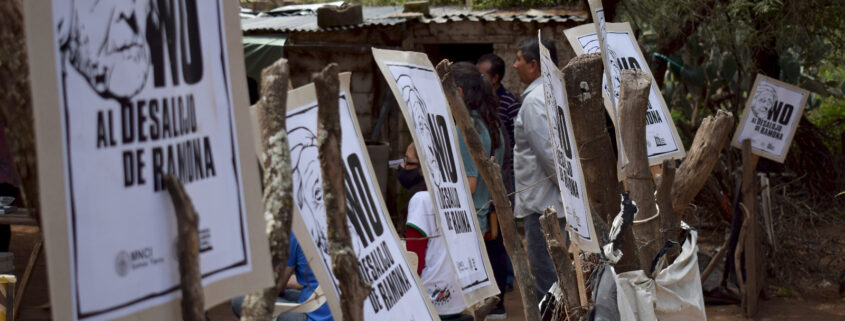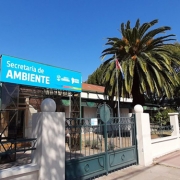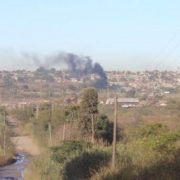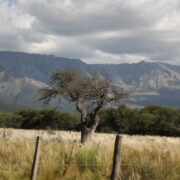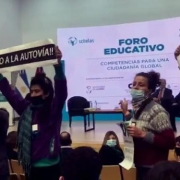International Day of Peasant Struggle
On April 17, the International Day of Peasant Struggle was celebrated, commemorating the murder of 19 peasants who demanded their access to land and justice in 1966 in El Dorado dos Carajá, Brazil. Crime that still goes unpunished.
Access to land continues to be one of the main conflicts facing the peasantry today. The dispute is based on the struggle for access, control and reconfiguration of the territory that includes soil, water, air, biodiversity, communities, etc. In our region, the main reason that has triggered it is the advance of agribusiness, characterized by being in the hands of a small number of national and transnational companies that are articulated through the sale and appropriation of land, transgenic seeds, pesticides, machinery , until its effective commercialization (in the hands of monopolies).
The dominant production model in our country, based on the “green revolution”, is based on a destructive, decontextualized way of producing and not linked to the pre-existing communities, nature and customs of the region where it takes place. Proof of this are the innumerable environmental and social liabilities that it generates through the excessive use of agrochemicals, the indiscriminate felling of trees, the contamination of surface waters and water sources, the immoderate use of fossil fuels, the increasing emission of greenhouse gases. , the impoverishment of soils, the extermination of biodiversity and the consequent production of food lacking in nutrients.
As a result of the serious consequences that it produces both in health and in the environment, over the years, different resistances to this form of production have been developed. An example of this is Ramona Orellano de Bustamante, a symbol of struggle for peasants and peasants, who for more than 15 years has resisted in the north of the province of Cordoba in defense of its territory, facing economic power, agribusiness, and power. judicial system, and the system that has systematically violated it.
Agroecology is thus presented as an alternative to agribusiness, developed by the peasantry, peasant families and indigenous peoples. This other way of producing is not considered only as a method of cultivating healthy food of nutritional quality, but also as a movement with social, cultural and political goals whose principle is respect for Mother Earth. It also revalues the peasant status, helps to build independence from unfavorable markets, favoring local, sustainable and resilient development in the face of climate change.
Despite all the benefits that agroecology presents, and the need to promote family, peasant and indigenous agriculture, and if it is regulated both at the national and provincial level (National Law of Family, Peasant and Indigenous Agriculture and Law of Good Agricultural Practices de Córdoba), there are currently no real public policies that value and promote it. For these reasons, a true political will is necessary to address the urgency of an agrarian reform, which leads us towards a more sustainable agriculture, which produces quality food and with well-paid farmers recognized for their service to society. Undoubtedly, it is a pending debt and there is still a long way to go, so it is important that the fight is vindicated and made visible on April 17.
Authors
- Ananda Lavayen
- Maria Laura Carrizo
Contact
- Juan Bautista López, juanbaustistalopez@fundeps.org

